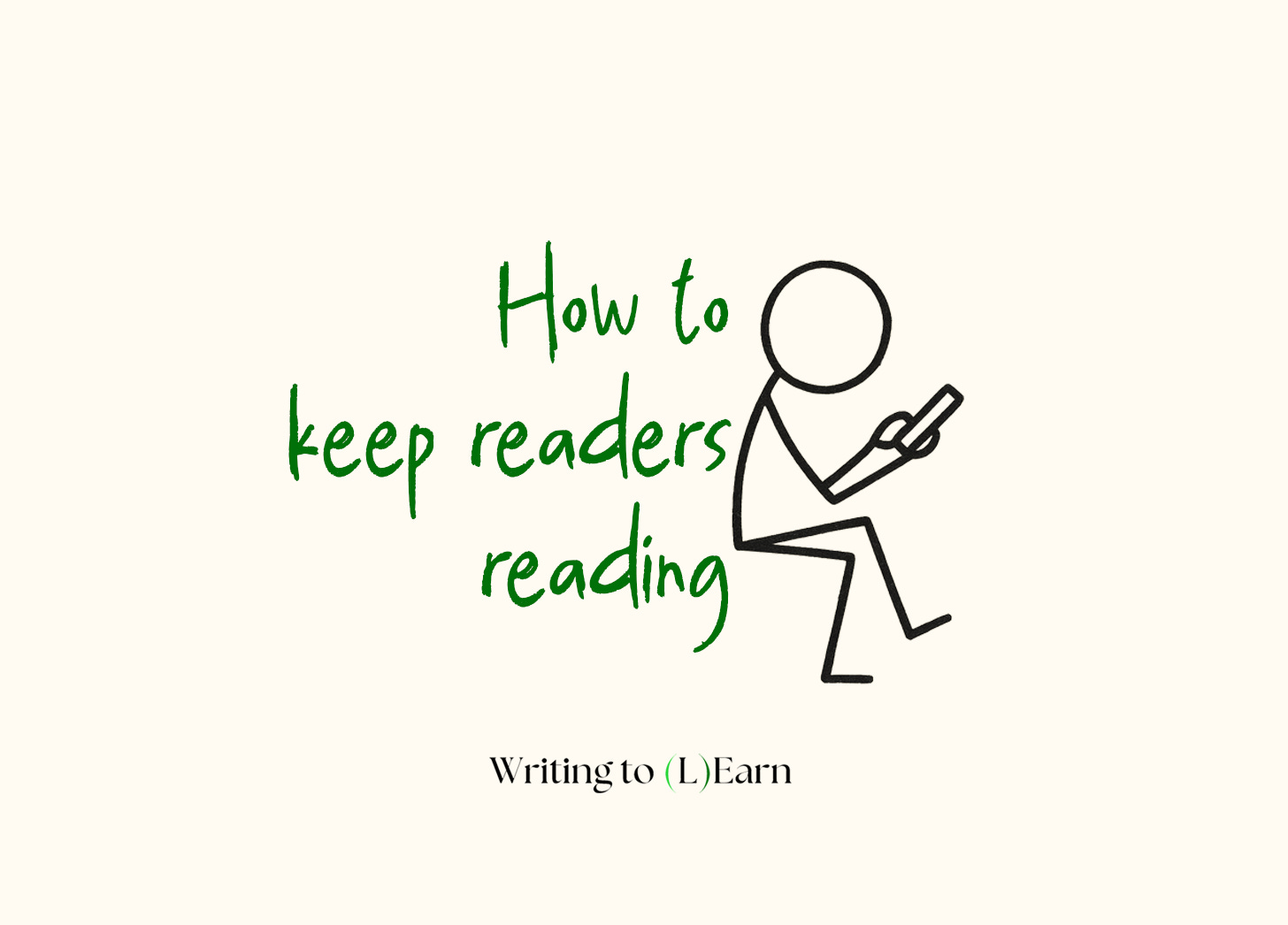The Writing Technique That Makes Readers Physically Unable to Stop Reading
Your brain releases stress hormones when you don't finish this sentence.
Hello, hello, it's Michael from the Writing to (L)Earn team. Today I'm sharing the one storytelling technique that made my writing “unputdownable.” And it’s rooted in brain chemistry.
Now, have you ever had a 'Eureka!' moment?
One of those times when, all of a sudden, something previously confusing just made sense. Well, why is that? It's because you 'closed a door.'
When we have a lack of information, we create an 'open door' in our minds. Our brains hate it. We crave knowledge and understanding. When we don't know or understand something, our brains actually release cortisol, commonly known as 'the stress hormone.'
As storytellers, we can use this to our advantage.
Here's a sticky example from my friend Niklas Goeke of opening doors people can't help but walk through:
"I went to the toilet, but not to relieve myself. I was supposed to meet someone. I looked at the package in my hand and wondered about its contents."
These three lines open three doors. When someone goes to the toilet but not to pee, well, why do they go there? Who are they supposed to meet? What's inside the package?
Naturally, you'll start opening more doors yourself as your mind scrambles to grasp what's going on.
Why are they meeting with someone in a toilet?
Does the meeting need to happen in secret?
Is what's inside the package dangerous or illegal?
Will the deal happen as planned?
The second line closes the first door right away — but it also immediately opens another. "Ah, not to pee, to meet someone, okay. But wait, who?"
"They never showed up. I dropped the package into the trash and went home."
That's probably the most depressing way to close all these doors. It is boring, but hey, the story is over!
How about just closing one of them?
"They never showed up. I decided to open the package. What I found stopped me in my tracks."
Ahh, now we're cooking! Progress! The story is moving along.
My friend Todd Brison's article How to Keep Readers Reading Long After the First Line dissects one of my first stories. Even though I was the author, I learned more about good writing from Todd's wisdom in the piece than just about any resource I've come across.
Todd highlights my use of opening new doors that we're dying to explore and using what he refers to as 'internal cliffhangers' at the end of specific paragraphs and sections.
An internal cliffhanger is where we don't give all the information about a part of our story away. At the end of a paragraph in the middle of the story, we create a springboard by holding back information from our reader. They simply have to find out more.
Check out some of these examples below from my article that Todd dissected — My Life Began the Day I Lost $250,000:
"I got a taste of success, and then I wanted more. I began dabbling in real estate investments in Central America."
"But the moment I heard the voice on the other end of the line, I knew something was wrong. My stomach began to drop."
"After a long pause, the man — my partner in the deal, and someone who I'd once considered family — gave me the news. 'Michael, the money isn't coming,' he said. 'The deal is dead.'"
In each of these instances, we have to know what happens next.
This is the power of opening new doors that you later close as the story advances.
Writing for human nature
The truth is, you're not competing with other writers. You're competing with every notification, every distraction, every excuse your reader has to stop reading.
But when you master the art of “opening and closing doors,” you're no longer fighting against human nature. You're working with it.
Your reader's brain literally won't let them stop until they find out what happens next.
Start practicing this today. Take any story you're working on and ask yourself: Where can I open a door? Where can I withhold just enough information to create that delicious tension?
Because once you understand how to become a master locksmith of the mind, you'll never write a boring sentence again.
—Michael, with John & Darius





